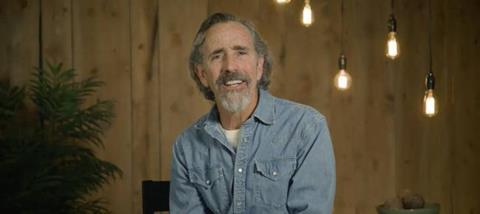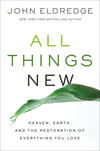
I always felt it strange that God needed to command us to love him. (It is the first and greatest of all the commandments.) Now I see better. When God calls us to love him as our “first love,” it is not only because he deserves to hold that place in our hearts, but also because he knows what pain will come when we get that out of order. If you give the part of your soul that is meant for God to lesser things, they will break your heart because they cannot possibly come through for you in the ways God can. Only he will never leave you or forsake you. The command is a rescue from disaster.
Many of you have begun to discover the joy and freedom loving God brings to the rest of your life. Keeping God as our first love, we are not destroyed when others fail to love us well; we are able to weather criticism, loneliness, and rejection. Our other loves are able to find their whole and wholesome expression, and we are able to flourish as human beings. Anchored in True Love, our hearts can go on to love. Because we have first things first, as the saying goes.
Hope functions in the same way.
When our hopes are in their proper places, attached to the right things, not only do we flourish better as human beings, but we are rescued from a thousand heartbreaks. For not all hopes are created equal; there are casual hopes, precious hopes, and ultimate hopes.
Casual hopes are the daily variety: “I sure hope it doesn’t rain this weekend”; “I hope we can get tickets to the game”; “I really hope this flight is on time.” Nothing wrong with this brand of hope; it is human nature to have it. I think it is the sign of a healthy soul when we often use the words “I hope.” My wife does. “I hope this pie turns out,” meaning she cares about the dinner she is hosting. “I hope we get to the Tetons next year,” meaning she cares about dreams and family memories. Hope shows your heart is still alive.
But of course, those casual hopes are nothing when compared to our precious hopes: “I hope this pregnancy goes well”; “I hope God hears my prayers for Sally”; “I hope the CT scan turns out to reveal nothing at all.” Precious hopes are far deeper to our hearts, and they tend to fuel our most earnest prayers.
Deeper still lie our ultimate hopes, our life-and-death hopes. I would suggest that the only things that belong in the category of ultimate hopes are the things that will destroy your heart and soul if they are not fulfilled. “I hope God can forgive me.” “I hope somehow my mistakes can be redeemed.” “I hope I will see you again.”
You’ll notice that many people have let their hopes go wandering—they have made casual hopes into precious hopes and turned genuinely precious hopes into critical or ultimate hopes. The person who commits suicide because their loved one chose another has taken a precious hope and made it the outcome of their very being.
I would say that when a casual hope is deferred, we are disappointed but no more. We are downcast for a moment or a day. When a precious hope is dashed, it can really break your heart. You may not recover for a week or five years, depending on the loss and the other resources of your life. “Hope deferred makes the heart sick” (Proverbs 13:12). Doesn’t it, though?
But when an ultimate hope goes unanswered, the result is devastation from which you will never recover.
Here is my point: the renewal of all things is meant to be your first hope in the way that God is your First Love. If it isn’t the answer to your wildest dreams, if you aren’t ready at this very moment to sell everything and buy this field, then you have placed your hopes somewhere else.
Nearly everyone has.
We cannot move forward in our search for the new creation until we face the truth honestly. Otherwise, this will just be a curiosity; interesting, but not the rescue our hearts so desperately need. We fight this hope. We hear about the Renewal and think to ourselves, Well, isn’t that nice; I’d never heard it put that way, and go right on with our desperate search for the kingdom now.
You have a heart for the kingdom, for the Great Restoration. I said it might be the most important thing to know about yourself; it is a lens by which you can understand your longings, fears, addictions, anger—not to mention the actions of the human race. Where is your kingdom heart these days? Are you embarrassed by it? What are you presently doing with it? What are you fantasizing about? Where we take our fantasies is a helpful way to know what we are doing with our kingdom heart.
John Eldredge is an author, counselor and teacher. He is also the president of Ransomed Heart, a ministry devoted to helping people discover the heart of God, recover their own hearts in God's love, and learn to live in God's Kingdom. This article was adapted from John's latest book All Things New Copyright (C) 2017 by Thomas Nelson Publishers. Used by permission of Thomas Nelson thomasnelson.com





























